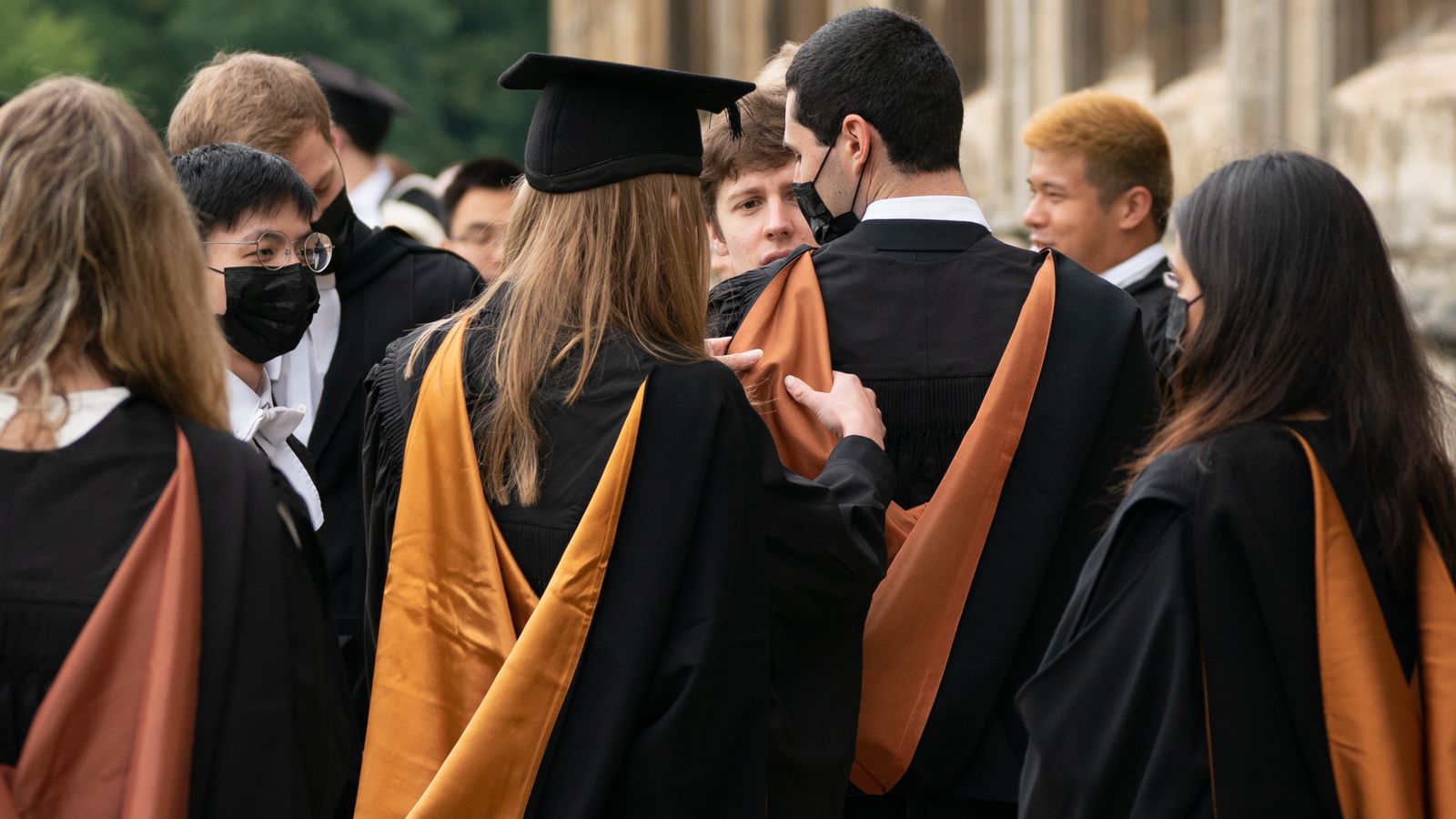Plans to consider minimum grade requirements for student loans are “soul-crushing”, according to GCSE mathematics student Hamza Ahmed.
On Thursday, the government unveiled its response to the Augar review into higher education (HE) funding.
A new consultation will consider whether students without at least a GCSE pass in English and maths or two E grade A-levels should access student loans.
“It feels soul-crushing, honestly,” Hamza told Sky News. “If I don’t pass, I’m being told I have to do it again. It really makes me feel like I can’t accomplish certain things now.”
“I would love to go to university. I feel like it’s an experience and I get the education as well. It doesn’t matter if it takes years to learn when you want to do. As long as you’re on that path to figuring it out, that’s okay.”
The government said 4,800 students without GCSE maths and English passes entered higher education last year, (excluding mature students who would be exempt from the change).
The University and College Admissions Service says its modelling shows disadvantaged students would fare worst if the change comes in.
“Minimum entry requirements aren’t a new concept – people already apply to university with their GCSEs and A-Levels,” said John Cope, executive director at UCAS.
“Students shouldn’t worry – this isn’t going to come in straight away but at UCAS we have done some modelling about what that impact could be and we know disadvantaged students are more likely not to meet the minimum entry requirements. So thought would have to be given to them.”
Please use Chrome browser for a more accessible video player
Read more: Student loan repayment freeze is ‘tax rise by stealth’ for middle earners, says IFS
University and College Union general secretary Jo Grady criticised the plans, saying they are an “attack” on poorer students and “fly in the face of the levelling up agenda”.
“We saw during the pandemic that those from better-off backgrounds benefited most from grade inflation, with private schools gaming the system,” Ms Grady said.
“Eligibility requirements threaten to make this situation worse, creating huge pressure on schools and colleges to inflate grades so that their students get into university, and further entrenching the divide between private and state schools.”
The proposals also seek to change student loan repayments so that they start at a lower salary threshold of £25,000 from 2023/24, and students will repay loans over 40 years instead of 30.
Ms Grady says this forces young people to make “a devil’s bargain, saddling themselves with a lifetime of debt in an effort to improve their life chances”.
Birmingham City footballer Troy Deeney calls for teaching of ‘black, Asian and minority ethnic histories and experiences’ to be compulsory in schools
Schools issued guidance on teaching partisan issues like BLM and Israel-Palestine conflict
Fathers whose daughters took their own lives urge ministers to place suicide awareness on school curriculum
Read more: Schools issued guidance on teaching partisan issues like BLM and Israel-Palestine conflict
Geoff Barton, general secretary of the Association of School and College Leaders, said the entry requirement changes sounded like “removing a ladder up rather than levelling up”.
“We welcome steps to reduce student loan interest rates and we understand the need to address the scale of the student loan book,” Mr Barton said.
“However, this comes with a sting in the tail as students will now face 40 years rather than 30 years of repayments,” he added.
The government says the plans are intended to make the system fairer for students and taxpayers with more people going to university today than ever before.
It says not all students receive the same high quality of teaching and too often, students are taking on debt for courses that will not help them earn more in the future.
It says it will seek views on how to ensure young people are encouraged to pursue the right path and receive a fair deal for their investment if they choose to go to university.
Follow the Daily podcast on Apple Podcasts, Google Podcasts, Spotify, Spreaker
“Only 25% of students will pay back their loan in full,” said Michelle Donelan, minister for Higher Education and Further Education.
“Somebody’s going to have to pay that and the reality is it’s the taxpayer, the vast majority of who haven’t been to university.
“What we’re doing is driving up quality so that students will go and get better jobs after they graduate and also ensuring the taxpayer has to pay less of this bill.”






















